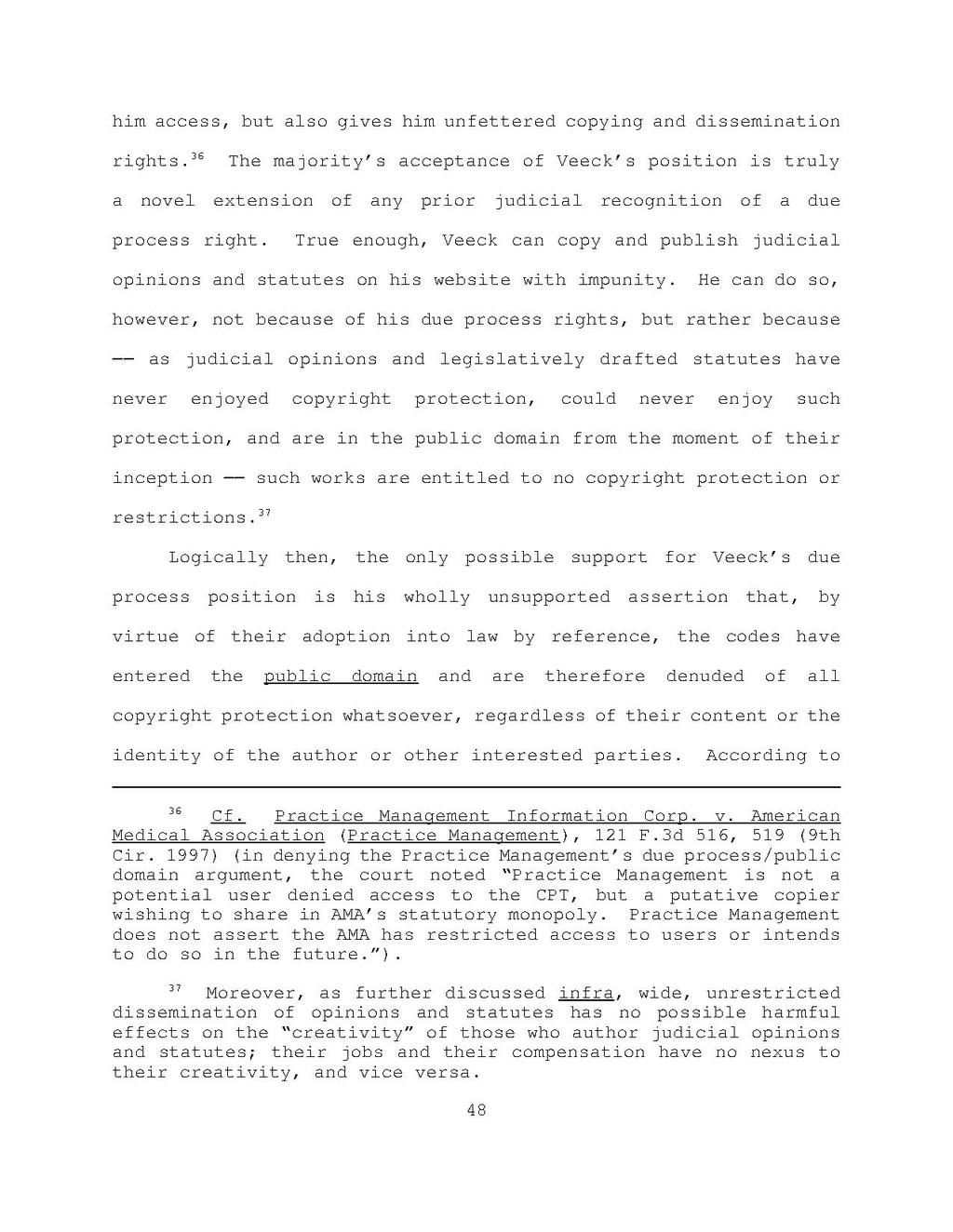him access, but also gives him unfettered copying and dissemination rights.[1] The majority's acceptance of Veeck's position is truly a novel extension of any prior judicial recognition of a due process right. True enough, Veeck can copy and publish judicial opinions and statutes on his website with impunity. He can do so, however, not because of his due process rights, but rather because —as judicial opinions and legislatively drafted statutes have never enjoyed copyright protection, could never enjoy such protection, and are in the public domain from the moment of their inception —such works are entitled to no copyright protection or restrictions.[2]
Logically then, the only possible support for Veeck's due process position is his wholly unsupported assertion that, by virtue of their adoption into law by reference, the codes have entered the public domain and are therefore denuded of all copyright protection whatsoever, regardless of their content or the identity of the author or other interested parties. According to
- ↑ Cf. Practice Management Information Corp. v. American Medical Association (Practice Management), 121 F.3d 516, 519 (9th Cir. 1997) (in denying the Practice Management's due process/public domain argument, the court noted "Practice Management is not a potential user denied access to the CPT, but a putative copier wishing to share in AMA's statutory monopoly. Practice Management does not assert the AMA has restricted access to users or intends to do so in the future.").
- ↑ Moreover, as further discussed infra, wide, unrestricted dissemination of opinions and statutes has no possible harmful effects on the "creativity" of those who author judicial opinions and statutes; their jobs and their compensation have no nexus to their creativity, and vice versa.
48
